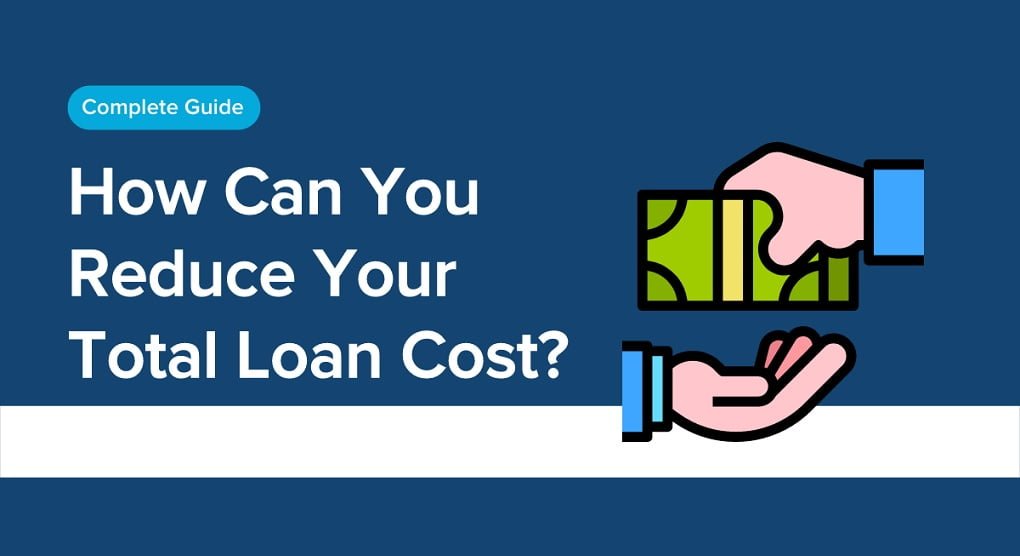10 Best Ways to Reduce Your Total Loan Cost 2023

How to Reduce Your Total Loan Cost
Taking out a loan can be intimidating, especially if you’re worried about paying high interest rates and fees. The total cost of your loan includes more than just the interest rate – factors like origination fees, closing costs, and loan terms also impact how much you’ll pay over the life of the loan. The good news is there are several strategies you can use to reduce your total loan cost. Here are 10 tips to reduce the overall amount you’ll pay on a loan:
- Improve your credit score
One of the biggest factors lenders use to determine your interest rate is your credit score. The higher your score, the lower the rate lenders will likely offer you. Take time before applying for a loan to improve your credit, which you can do by paying bills on time, paying down debts, avoiding taking on new credit cards, and disputing any errors on your credit report. Even boosting your score by a few dozen points could equal thousands of dollars in interest savings.
- Compare lenders and rates
Interest rates and fees can vary widely amongst lenders, so it pays to take the time to compare options. Look at rates from banks, credit unions, and online lenders. Get rate quotes from multiple lenders – having this information allows you to negotiate for the lowest possible rate. Consider all the costs too – not just the interest rate. Lower origination fees or other closing costs at one lender may offset a slightly higher interest rate.
- Opt for a shorter-term loan
One way to ensure you pay less interest over the life of the loan is to opt for a shorter repayment term. For example, choosing a 15-year mortgage over a 30-year mortgage means you pay the loan off in half the time. This reduces the total amount of interest you pay. Just be sure the shorter term fits within your budget.
- Make additional payments
Making payments in addition to your regular monthly amount goes directly towards paying down the principal, which cuts down on interest costs over time. Even adding a little extra each month makes a difference. See if your lender allows you to make bi-weekly instead of monthly payments to achieve a similar effect.
- Refinance your loan
After you’ve had a loan for some time, look into the possibility of refinancing with another lender at a lower interest rate. You may also be able to snag better terms. Do the math to see if it makes financial sense to pay any fees to refinance for a lower rate. Refinancing saves the most money when you have a long time left on the loan repayment period.
- Claim tax deductions
There are a variety of tax deductions you may be able to take advantage of as a borrower to lower your total loan costs. Things like mortgage interest, student loan interest, and property taxes can all equate to substantial write-offs that make your loan more affordable. Consult a tax professional to maximize deductions.
- Buy points to lower your rate
Buying points means paying an upfront fee to receive a reduced interest rate on your loan. Each point typically reduces the rate by 0.25%. This strategy allows you to essentially “buy down” your rate. Buying points makes the most sense when you plan to keep the loan long-term. Do the math to see if spending more upfront saves over time.
- Avoid fees for late payments
Nothing adds to your total loan costs like fees for late payments. Avoid penalties and extra interest by carefully noting due dates and setting payment reminders. Sign up for autopay if you tend to forget to make manual payments. Even being a day late can result in fees, so diligence in making timely payments prevents costs from snowballing.
- Put down a larger down payment
The less you have to borrow, the less interest you pay on the loan. Putting more money down upfront lowers your principal balance. This equates to taking out a smaller loan and paying less over its lifetime. Even an extra 5% down can amount to thousands in interest savings. Having at least 20% down on a home also helps you avoid costly private mortgage insurance.
- Shop around for closing costs/title fees
On top of interest and principal payments, loans involve closing costs and title fees. These represent all the administrative costs to process your loan, and they’re not negligible. Get quotes from multiple providers to make sure you’re paying the lowest reasonable fees. Also, ask your lender if they have any deals or incentives to lower closing costs.
The bottom line is that reducing your total loan costs involves both big-picture strategies (like improving your credit) and small details (like avoiding late fees). Being a savvy, informed borrower can pay off exponentially by optimizing the amount you pay over the lifetime of the loan. Follow these tips above to ensure your loan costs are the absolute minimum. Careful planning, smart financial decisions, and disciplined repayment habits are the keys to minimizing the total interest and fees you pay. Do your due diligence when borrowing so you can optimize your costs.



